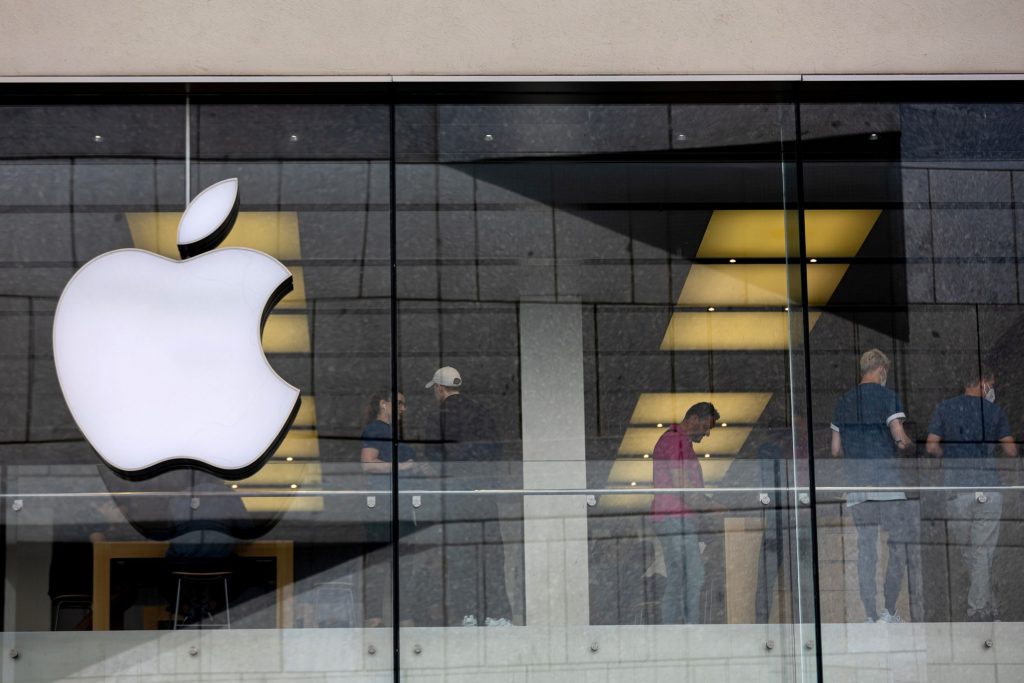
Blue-chip companies that need to borrow in the U.S. are increasingly relying on commercial paper to avoid locking in longer-term borrowing costs in a market beset by turbulence.
With the Federal Reserve poised for a fresh interest-rate hike later today, the days when blue-chip firms could borrow super-cheaply for decades are gone, at least for now. Corporate treasurers have instead been turning more to commercial paper, a type of unsecured debt that typically lasts 270 days or less.
Recommended For You
The total volume of these IOUs outstanding has mushroomed to nearly $1.2 trillion this year, up more than 20 percent from its lows in 2020, with computing giant Apple Inc. and pipeline-owner Kinder Morgan Inc. among those that have been dipping more into the market this year. At the same time, investment-grade companies are relying less on longer-term debt markets, with sales of high-grade corporate bonds dropping about 7 percent in 2022, according to data compiled by Bloomberg.
If you strip out banks and other financial-services companies, sales of this kind of debt in the first half of this year were the lowest since at least 2016, according to BMO Capital Markets. Companies are essentially betting that the Fed will get inflation under control, and that longer-term rates will stabilize after rising for much of the year.
"All this volatility has corporations just trying to ride this out with commercial paper issuance as more of a placeholder for them until things start to calm down," said Peter Yi, director of short-duration fixed income and head of credit research at Northern Trust Asset Management, which oversees around $1.2 trillion.
In re-embracing commercial paper, companies are returning to a market that has a history of seizing up during systemic crises. But lately, borrowing in longer-term markets has grown trickier than it usually is.

There have been about 49 days in 2022 where not a single company sold corporate bonds, which can imply that the market was essentially closed, compared with 12 days in the same period last year, according to data compiled by Bloomberg News. An index of bond market volatility, the ICE BofA MOVE Index, had climbed to 128.27 as of Monday, from 77.1 at the end of last year.
The Fed is in tightening mode, so rates at the very shortest parts of the lending curve aren't likely to retreat much any time soon. The longer-term outlook is harder to forecast, especially if rate hikes end up pushing the economy into a slump.
There are already early signs of potential recession, including an inversion of key segments of the Treasury yield curve and news this week from Walmart Inc. that shoppers are cutting back. That kind of macroeconomic uncertainty has made many investors reluctant to buy longer-term corporate bonds from those companies that have ventured into the market.
Meanwhile, heightened investor demand for commercial paper has made it relatively cheap for companies to fund. For example, borrowing for 30 days in the commercial paper market can cost about 2.25 percent as of Monday, while yields on high-grade bonds maturing in one to three years were averaging about 3.95 percent. The gap between those two rates—a measure of the savings from borrowing in the commercial paper market—is wide compared with the averages for the last five years.
"I think supply has followed demand here, and it's a reflection of the large gap in terms of pricing in commercial paper rates versus the front-end bond market," said JPMorgan Chase & Co. strategist Nathaniel Rosenbaum.
Commercial Paper's Comeback
Banks have been significant sellers of commercial paper for years, but the biggest shift recently has been among companies outside the financial sector, said Erin Gonzalez, head of commercial paper trading at Barclays Plc. Commercial paper outstanding bottomed out around $945 billion in September 2020 before rebounding, Fed data show. The amount of total outstanding is $1.17 trillion as of July 20, though that's still only about half the size of its peak in 2007.
"We're seeing corporations come back," Gonzalez said. "Corporate issuers that termed out during the crisis are returning."
Even as companies increasingly borrow in the commercial paper market, some money managers remain wary. During the March 2020 turmoil, panicked investors yanked billions from money funds in a matter of weeks, contributing to the seizing up of the commercial-paper market. Companies had to pay off their maturing IOUs with either precious cash or money from a bank line.
That required the Federal Reserve to provide emergency support to ensure markets, and even money-market funds, would continue to function. The Fed had to similarly support the commercial paper market after Lehman Brothers failed.
"The experience we have witnessed over the past two decades with regard to commercial paper —which not only had massive repricings, but also elicited formal responses from the Fed—is still relatively fresh in our minds," said Jerome Schneider, head of short-term portfolio management and funding at Pacific Investment Management Co. (PIMCO), one of the largest bond fund managers in the world.
Regulatory changes in the U.S. money-market industry have sapped demand for commercial paper for years, and more changes are coming that could reduce the funds' purchases even more. Prime money-market funds are buying about $480 billion of the short-term IOUs annually, vs. $725 billion in 2019, John Kodweis, head of commercial paper origination at JPMorgan, said at a conference last month.
Despite any misgivings about prior turmoil and potential regulatory changes, short-end investors have large piles of cash and are looking for places to invest it. And many companies take comfort knowing the Fed is inclined to keep the market operating if it seizes up, said Barclays' Gonzalez.
"Issuers that were gone for some time probably would've felt comfortable coming back by the end of 2020," she said. "Going forward, they're not as worried, knowing the Fed stepped in and did what they did."
—With assistance from Michael Gambale.
© 2025 ALM Global, LLC, All Rights Reserved. Request academic re-use from www.copyright.com. All other uses, submit a request to [email protected]. For more information visit Asset & Logo Licensing.




